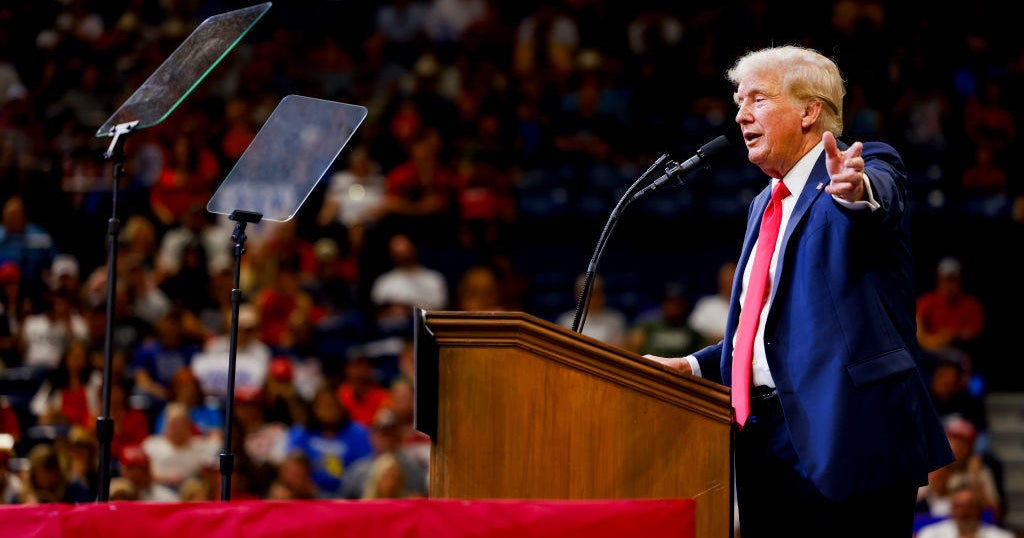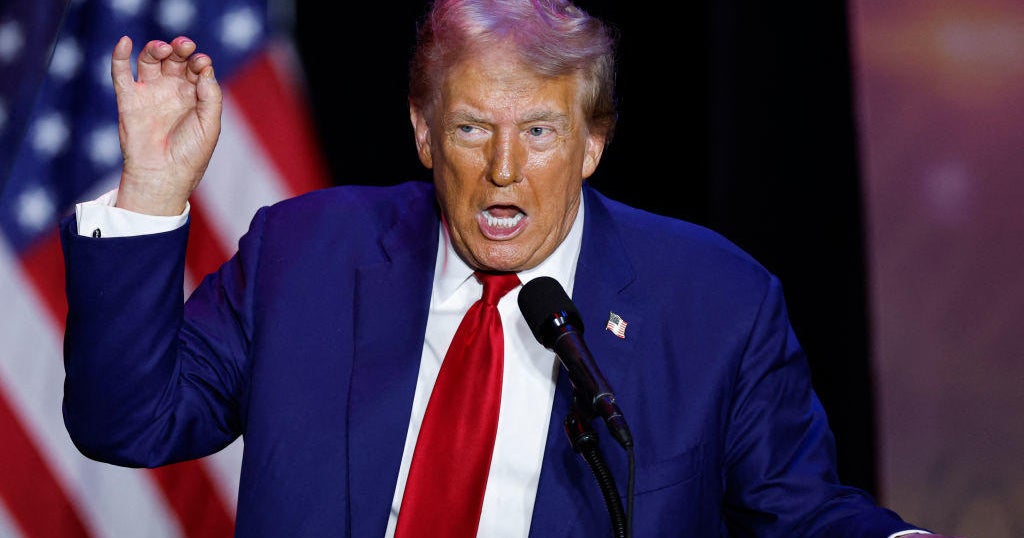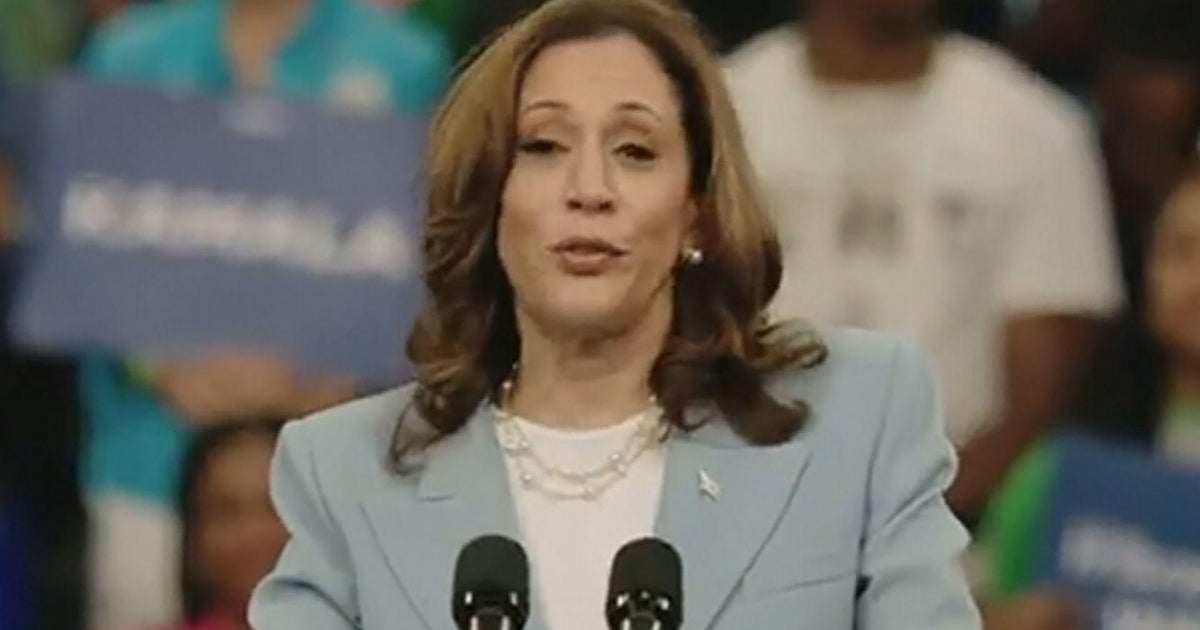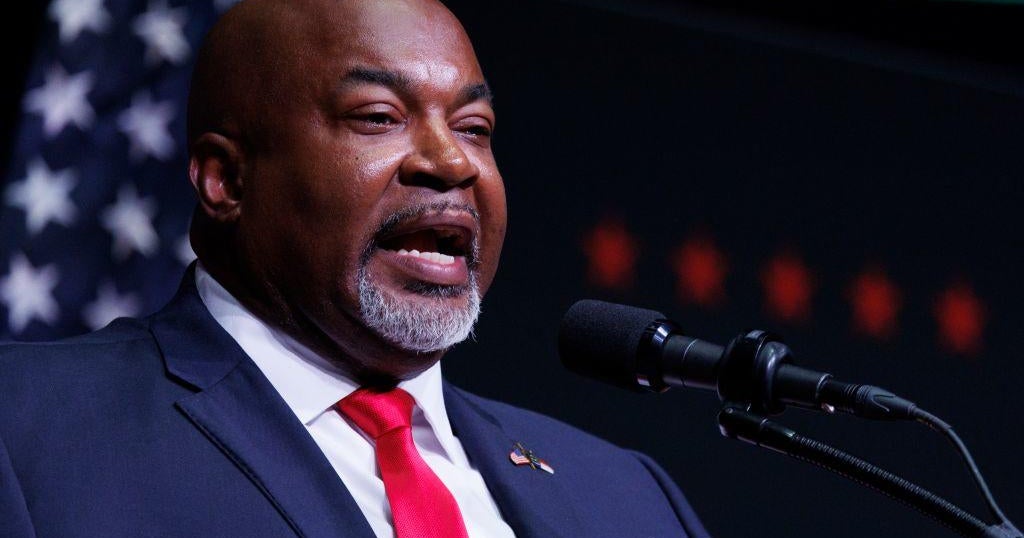CBS News
Trump campaign says it has been hacked

Former President Donald Trump’s presidential campaign said Saturday that it has been hacked and suggested Iranian actors were involved in stealing and distributing sensitive internal documents.
The campaign provided no specific evidence of Iran’s involvement, but the claim comes a day after Microsoft issued a report detailing foreign agents’ attempts to interfere in the U.S. campaign in 2024.
In its report, Microsoft cited an instance of an Iranian military intelligence unit in June sending “a spear-phishing email to a high-ranking official of a presidential campaign from a compromised email account of a former senior advisor.”
Trump campaign spokesperson Steven Cheung blamed the hack on “foreign sources hostile to the United States.”
A National Security Council spokesperson told CBS News that it was deferring to the Justice Department on the matter.
“As we have said many times, the Biden-Harris Administration strongly condemns any foreign government or entity who attempts to interfere in our electoral process or seeks to undermine confidence in our democratic institutions,” the NSC spokesperson said in a statement.
Politico first reported Saturday on the hack. The outlet reported that it began receiving emails on July 22 from an anonymous account. The source — an AOL email account identified only as “Robert” — passed along what appeared to be a research dossier the campaign had apparently done on the Republican vice presidential nominee, Sen. JD Vance of Ohio. The document was dated Feb. 23, almost five months before Trump selected Vance as his running mate.
“These documents were obtained illegally” and “intended to interfere with the 2024 election and sow chaos throughout our Democratic process,” Cheung said.
He pointed to the Microsoft report issued Friday and its conclusions that “Iranian hackers broke into the account of a ‘high ranking official’ on the U.S. presidential campaign in June 2024, which coincides with the close timing of President Trump’s selection of a vice presidential nominee.”
“The Iranians know that President Trump will stop their reign of terror just like he did in his first four years in the White House,” Cheung said, adding a warning that “any media or news outlet reprinting documents or internal communications are doing the bidding of America’s enemies and doing exactly what they want.”
In response to Microsoft’s report, Iran’s United Nations mission denied it had plans to interfere or launch cyberattacks in the U.S. presidential election. In July, U.S. officials with the Office of the Director of National Intelligence, FBI and Department of Homeland Security indicated that Iran has started an influence campaign designed to undercut Trump’s candidacy.
Cheung did not immediately respond to questions about the campaign’s interactions with Microsoft on the matter. Microsoft said Saturday it had no comment beyond its blog post and Friday report.
In that report, Microsoft stated that “foreign malign influence concerning the 2024 US election started off slowly but has steadily picked up pace over the last six months due initially to Russian operations, but more recently from Iranian activity.”
The analysis continued: “Iranian cyber-enabled influence operations have been a consistent feature of at least the last three U.S. election cycles. Iran’s operations have been notable and distinguishable from Russian campaigns for appearing later in the election season and employing cyberattacks more geared toward election conduct than swaying voters.”
“Recent activity suggests the Iranian regime — along with the Kremlin — may be equally engaged in election 2024,” Microsoft concluded.
Specifically, the report detailed that in June 2024, an Iranian military intelligence unit, Mint Sandstorm, sent a phishing email to an American presidential campaign via the compromised account of a former adviser.
“The phishing email contained a fake forward with a hyperlink that directs traffic through an actor-controlled domain before redirecting to the listed domain,” the report states.
Vice President Kamala Harris’ campaign did not immediately respond to a request for comment on the reported hacking or on the Democratic nominee’s cybersecurity protocols.
CBS News
The Menendez Brothers’ Fight for Freedom

Watch CBS News
Be the first to know
Get browser notifications for breaking news, live events, and exclusive reporting.
CBS News
9/28: CBS Weekend News – CBS News

Watch CBS News
Be the first to know
Get browser notifications for breaking news, live events, and exclusive reporting.
CBS News
California Gov. Gavin Newsom vetoes bill requiring speeding alerts in new cars

California Gov. Gavin Newsom vetoed a bill Saturday that would have required new cars to beep at drivers if they exceed the speed limit in an effort to reduce traffic deaths.
California would have become the first to require such systems for all new cars, trucks and buses sold in the state starting in 2030. The bill would have mandated that vehicles beep at drivers when they exceed the speed limit by at least 10 mph.
The European Union has passed similar legislation to encourage drivers to slow down. California’s proposal would have provided exceptions for emergency vehicles, motorcycles and motorized scooters.
In explaining his veto, Newsom said federal law already dictates vehicle safety standards and adding California-specific requirements would create a patchwork of regulations.
The National Highway Traffic Safety “is also actively evaluating intelligent speed assistance systems, and imposing state-level mandates at this time risks disrupting these ongoing federal assessments,” the Democratic governor said.
Opponents, including automotive groups and the state Chamber of Commerce, said such regulations should be decided by the federal government, which earlier this year established new requirements for automatic emergency braking to curb traffic deaths. Republican lawmakers also said the proposal could make cars more expensive and distract drivers.
The legislation would have likely impacted all new car sales in the U.S., since the California market is so large that car manufacturers would likely just make all of their vehicles comply.
California often throws that weight around to influence national and even international policy. The state has set its own emission standards for cars for decades, rules that more than a dozen other states have also adopted. And when California announced it would eventually ban the sale of new gas-powered cars, major automakers soon followed with their own announcement to phase out fossil-fuel vehicles.
Democratic state Sen. Scott Wiener, who sponsored the bill, called the veto disappointing and a setback for street safety.
“California should have led on this crisis as Wisconsin did in passing the first seatbelt mandate in 1961,” Wiener said in a statement. “Instead, this veto resigns Californians to a completely unnecessary risk of fatality.”
The speeding alert technology, known as intelligent speed assistance, uses GPS to compare a vehicle’s pace with a dataset of posted limits. If the car is at least 10 mph over, the system emits a single, brief, visual and audio alert.
The proposal would have required the state to maintain a list of posted speed limits, and it’s likely that those would not include local roads or recent changes in speed limits, resulting in conflicts.
The technology has been used in the U.S. and Europe for years. Starting in July, the European Union will require all new cars to have the technology, although drivers would be able to turn it off. At least 18 manufacturers including Ford, BMW, Mercedes-Benz and Nissan, have already offered some form of speed limiters on some models sold in America, according to the National Transportation Safety Board.
The National Highway and Traffic Safety Administration estimates that 10% of all car crashes reported to police in 2021 were related to speeding. This was especially a problem in California, where 35% of traffic fatalities were speeding-related — the second highest in the country, according to a legislative analysis of the proposal.
Last year the NTSB recommended federal regulators require all new cars to alert drivers when they speed. Their recommendation came after a crash in January 2022, when a man with a history of speeding violations ran a red light at more than 100 mph and struck a minivan, killing himself and eight other people.








